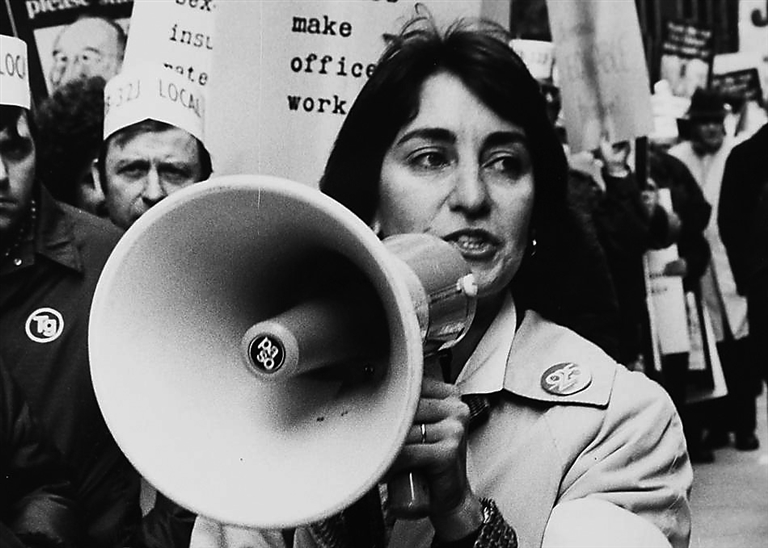
NFF Now: At Home is a virtual film festival that took place on the same dates as the Nantucket Film Festival. It featured more than 30 movies. Among this year’s spotlight films is “9To5: The Story of a Movement,” a documentary set in 1970s Boston when a group of women decide to fight back against the glass ceiling and sexual discrimination in the workplace. For more on NFF Now: At Home, visit www.nantucketfilmfestival.org. Directors and producers: Julia Reichert, Steven Bognar IN the early 1970s, a group of secretaries in Boston decided that they had suffered in silence long enough. They started fighting back, creating a movement called 9to5 to force changes in their workplaces. This movement became national, and is a largely forgotten story of U.S. 20th century history. It encapsulates a unique intersection of the women’s movement with the labor movement. The awareness these secretaries brought to bear on women’s work reverberates even today. The stories and strategies of these bold, creative women resonates in contemporary America. Julia Reichert and Steven Bognar follow their Oscar-winning Netflix doc “American Factory” with a history of a 1970s movement for women office workers that inspired the movie “9to5.” Reichert’s now classic and still inspiring “Union Maids,” chronicling three women in the 1930s labor movement, was released in 1976. While she was making that film, 9to5, the movement devoted to obtaining equal rights and fair conditions for women office workers, was gaining momentum. It makes perfect sense that Reichert and Bognar have now circled back to document that important and relatively little-known 1970’s labor action. Premiering as part of this year’s virtual AFI Docs festival that took place during June 17 to 21 and NFF Now: At Home, which closed Tuesday, “9to5: The Story of a Movement” is their first film after the Oscar-winning “American Factory,” but its oral-history form allows it to fit easily as a companion piece to “Union Maids.” It is another contribution to Reichert’s career-long focus on women and work. Based on interviews with the group’s founders, with a wealth of archival footage, “9to5” is sleek and astute, a valuable addition to Reichert and Bognar’s filmography and to the history of the women’s movement. As in “Union Maids” (made with Jim Klein and Miles Mogulescu) and “American Factory,” “9to5” is notable for the immediacy the filmmakers bring to the subject. “9to5” offers retrospective accounts of the women who were there at the start, including Karen Nussbaum and Ellen Cassedy, the 9to5 group’s founders. In 1972 they were clerical workers at Harvard, and Cassedy said they thought, “We keep this place running, yet we don’t get recognized, we don’t get enough money.” Although the film has no narrator, it does have a narrative trajectory as it traces the movement from its start to the present. Nussbaum and Cassedy began by handing out a newsletter on the streets of Boston, with the simple goal of gathering women to talk about their common problems as secretaries whose roles hadn’t changed since the Mad Men era. As their numbers grew, they organized and began advocating for rights that included better pay and clearly-defined job descriptions, which would not include fetching the boss’s dry cleaning. Their goals came to include child care and countering sexual harassment before that even had a name. The movement spread to other cities and became an organization called 9to5, National Association of Working Women. The documentary creates a vivid texture of the world the women were trying to change. We see newspaper ads from the period listing separate jobs for men and for women, along with television news clips in which men are flabbergasted to learn that their secretaries are discontented. Photos show women on National Secretary’s Day marching and holding signs that read, “Raises Not Roses.” All this is fluidity edited by Jaime Meyers Schlenck, so that the archival moments add variety and detail without taking the focus away from the first-hand voices that matter most. The only starry appearance is a brief interview with Jane Fonda, who recalls a forgotten fact: Her influential 1980 hit comedy, “Nine to Five,” was inspired by and drew on stories she heard from women in the organization, including the common fantasy of killing their bosses.(SD-Agencies) | 
